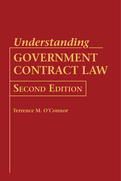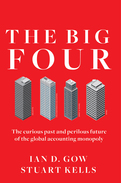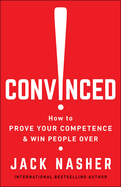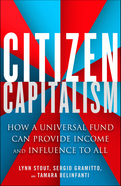Search Results: ""
Results 1009-1014 of 1358
Invisible Martyrs
2018
Farhana Qazi draws on her background as a pioneering counterterrorism professional and a devout Muslim to offer an insider's view of what drives girls and women to join radical Islamic movements and how we can keep them from making this terrible choice.
The first Muslim woman to work for the US government's Counterterrorism Center, Qazi found herself fascinated, even obsessed, by the phenomenon of female extremists. Why, she wondered, would a girl from Denver join ISIS, a radical movement known for its mistreatment of women? Why would a teenage Iraqi girl strap on a suicide bomb and detonate it?
From Kashmir to Iraq to Afghanistan to Colorado to London, she discovered women of different backgrounds who all had their own reason for joining these movements. Some were confused, others had been taken advantage of, and some were just as radical and dedicated as their male counterparts. But in each case, Qazi found their choices were driven by a complex interaction of culture, context, and capability that was unique to each woman.
This book reframes their stories so readers can see these girls and women as they truly are: females exploited by men. Through hearing their voices and sharing their journeys Qazi gained powerful insights not only into what motivated these women but also into the most effective ways to combat terrorism—and about herself as well. “Through them,” Qazi writes, “I discovered intervention strategies that are slowly helping women hold on to faith as they struggle with versions of orthodox Islam polluted by extremist interpretations. And in the process, I discovered a gentle Islam and more about myself as a woman of faith.”
The first Muslim woman to work for the US government's Counterterrorism Center, Qazi found herself fascinated, even obsessed, by the phenomenon of female extremists. Why, she wondered, would a girl from Denver join ISIS, a radical movement known for its mistreatment of women? Why would a teenage Iraqi girl strap on a suicide bomb and detonate it?
From Kashmir to Iraq to Afghanistan to Colorado to London, she discovered women of different backgrounds who all had their own reason for joining these movements. Some were confused, others had been taken advantage of, and some were just as radical and dedicated as their male counterparts. But in each case, Qazi found their choices were driven by a complex interaction of culture, context, and capability that was unique to each woman.
This book reframes their stories so readers can see these girls and women as they truly are: females exploited by men. Through hearing their voices and sharing their journeys Qazi gained powerful insights not only into what motivated these women but also into the most effective ways to combat terrorism—and about herself as well. “Through them,” Qazi writes, “I discovered intervention strategies that are slowly helping women hold on to faith as they struggle with versions of orthodox Islam polluted by extremist interpretations. And in the process, I discovered a gentle Islam and more about myself as a woman of faith.”
This updated classic offers clear and concise explanations of the basic legal concepts of government contract law for professionals at any stage of their career. Written in straightforward language for contracting officers, contract administrators, contractors, subcontractors, and others in the procurement field, this new edition has been updated with new cases and regulations.
The book breaks down the complex arena of government contract law into its three most basic parts: the contracting parties, the contract itself, and legal challenges. It begins by examining key aspects of the contracting officer's job and provides guidance for navigating its different and often conflicting demands. The government contractor's responsibilities and challenges are also outlined.
Government contracts come in a lot more varieties than the typical commercial contract, and they also tend to be long and confusing. The second part of the book introduces the different types of legal agreements the government uses to buy the goods and services it needs—and addresses the challenges of writing a perfectly clear contract and guidelines for interpreting an ambiguous one. The book concludes with an overview of the government contract litigation process.
This is an essential text for students preparing to do the work of government contracts, an indispensable guide for those new to the work, and a valuable reference for contracting personnel who seek solutions to specific issues they face in their day-to-day work.
The book breaks down the complex arena of government contract law into its three most basic parts: the contracting parties, the contract itself, and legal challenges. It begins by examining key aspects of the contracting officer's job and provides guidance for navigating its different and often conflicting demands. The government contractor's responsibilities and challenges are also outlined.
Government contracts come in a lot more varieties than the typical commercial contract, and they also tend to be long and confusing. The second part of the book introduces the different types of legal agreements the government uses to buy the goods and services it needs—and addresses the challenges of writing a perfectly clear contract and guidelines for interpreting an ambiguous one. The book concludes with an overview of the government contract litigation process.
This is an essential text for students preparing to do the work of government contracts, an indispensable guide for those new to the work, and a valuable reference for contracting personnel who seek solutions to specific issues they face in their day-to-day work.
The Big Four
2018
"Messrs. Gow and Kells have made an invaluable contribution, writing in an amused tone that nevertheless acknowledges the firms' immense power and the seriousness of their neglect of traditional responsibilities. 'The Big Four' will appeal to all those interested in the future of the profession--and of capitalism itself." —Jane Gleeson-White, Wall Street Journal
With staffs that are collectively larger than the Russian army and combined revenues of over $130 billion a year, the Big Four accounting firms—Deloitte, PricewaterhouseCoopers, Ernst & Young, and KPMG—are a keystone of global commerce. But leading scholar Ian Gow and award-winning author Stuart Kells warn that a house of cards may be about to fall.
Stretching back to the Medicis in Renaissance Florence, this book is a fascinating story of wealth, power, and luck. The founders of the Big Four lived surprisingly colorful lives. Samuel Price, for example, married his own niece. Between the world wars, Nicholas Waterhouse collected postage stamps while also hosting decadent parties in his fashionable London home.
All four firms have endured major calamities in recent decades. There have been hundreds of court cases and legal prosecutions for failed audits, tax scandals, and breaches of independence. The firms have come so close to “extinction level events” that regulators have required them to prepare “living wills.” And today, the Big Four face an uncertain future—thanks to their push into China, their vulnerability to digital disruption and competition, and the hazards of providing traditional services in a new era of transparency.
This account of the past, present, and likely future of the Big Four is essential reading for anyone perplexed or fascinated by professional services, working or considering working in the industry, or simply curious about the fate of the global economy.
With staffs that are collectively larger than the Russian army and combined revenues of over $130 billion a year, the Big Four accounting firms—Deloitte, PricewaterhouseCoopers, Ernst & Young, and KPMG—are a keystone of global commerce. But leading scholar Ian Gow and award-winning author Stuart Kells warn that a house of cards may be about to fall.
Stretching back to the Medicis in Renaissance Florence, this book is a fascinating story of wealth, power, and luck. The founders of the Big Four lived surprisingly colorful lives. Samuel Price, for example, married his own niece. Between the world wars, Nicholas Waterhouse collected postage stamps while also hosting decadent parties in his fashionable London home.
All four firms have endured major calamities in recent decades. There have been hundreds of court cases and legal prosecutions for failed audits, tax scandals, and breaches of independence. The firms have come so close to “extinction level events” that regulators have required them to prepare “living wills.” And today, the Big Four face an uncertain future—thanks to their push into China, their vulnerability to digital disruption and competition, and the hazards of providing traditional services in a new era of transparency.
This account of the past, present, and likely future of the Big Four is essential reading for anyone perplexed or fascinated by professional services, working or considering working in the industry, or simply curious about the fate of the global economy.
Outstanding Book of the Year gold medalist and “Most Likely to Save the Planet” from the Independent Book Publisher Awards.
Tom Szaky sets out to do the impossible – eliminate all waste. This book paints a future of a “circular economy” that relies on responsible reuse and recycling to propel the world towards eradicating overconsumption and waste.
Only 35 percent of the 240 million metric tons of waste generated in the United States alone gets recycled, according to the Environmental Protection Agency. This extraordinary collection shows how manufacturers can move from a one-way take-make-waste economy that is burying the world in waste to a circular, make-use-recycle economy.
Steered by Tom Szaky, recycling pioneer, eco-capitalist, and founder and CEO of TerraCycle, each chapter is coauthored by an expert in his or her field. From the distinct perspectives of government leaders, consumer packaged goods companies, waste management firms, and more, the book explores current issues of production and consumption, practical steps for improving packaging and reducing waste today, and big ideas and concepts that can be carried forward.
Intended to help every business from a small start-up to a large established consumer product company, this book serves as a source of knowledge and inspiration. The message from these pioneers is not to scale back but to innovate upward. They offer nothing less than a guide to designing ourselves out of waste and into abundance.
Tom Szaky sets out to do the impossible – eliminate all waste. This book paints a future of a “circular economy” that relies on responsible reuse and recycling to propel the world towards eradicating overconsumption and waste.
Only 35 percent of the 240 million metric tons of waste generated in the United States alone gets recycled, according to the Environmental Protection Agency. This extraordinary collection shows how manufacturers can move from a one-way take-make-waste economy that is burying the world in waste to a circular, make-use-recycle economy.
Steered by Tom Szaky, recycling pioneer, eco-capitalist, and founder and CEO of TerraCycle, each chapter is coauthored by an expert in his or her field. From the distinct perspectives of government leaders, consumer packaged goods companies, waste management firms, and more, the book explores current issues of production and consumption, practical steps for improving packaging and reducing waste today, and big ideas and concepts that can be carried forward.
Intended to help every business from a small start-up to a large established consumer product company, this book serves as a source of knowledge and inspiration. The message from these pioneers is not to scale back but to innovate upward. They offer nothing less than a guide to designing ourselves out of waste and into abundance.
Convinced!
2018
Competence does not speak for itself! You can't simply display it; you have to draw people's attention to it. World-renowned negotiation and deception detection expert, business professor, and mentalist Jack Nasher offers effective, proven techniques to convince others that we are talented, trustworthy, and yes, even brilliant.
Nasher offers the example of Joshua Bell, possibly the world's most famous violinist. In January 2007, at rush hour, he stepped into a Washington, DC, subway station, dressed like any street busker, and began to play a $4,000,000 Stradivarius. It was part of an experiment staged by a journalist of the Washington Post, who expected Bell's skill alone to attract an immense, awed crowd. But Bell was generally ignored, and when he stopped, nobody applauded. He made $34.17.
The good news is that you don't have to accept obscurity: you can positively affect others' perception of your talent. Whether you're looking for work, giving an important presentation, seeking clients or customers for your business, or vying for a promotion, Nasher explains how to use techniques such as expectation management, verbal and nonverbal communication, the Halo Effect, competence framing, and the power of nonconformity to gain control of how others perceive you.
Competence is the most highly valued professional trait. But it's not enough to be competent, you have to convey your competence. With Nasher's help you can showcase your expertise, receive the recognition you deserve, and achieve lasting success.
Nasher offers the example of Joshua Bell, possibly the world's most famous violinist. In January 2007, at rush hour, he stepped into a Washington, DC, subway station, dressed like any street busker, and began to play a $4,000,000 Stradivarius. It was part of an experiment staged by a journalist of the Washington Post, who expected Bell's skill alone to attract an immense, awed crowd. But Bell was generally ignored, and when he stopped, nobody applauded. He made $34.17.
The good news is that you don't have to accept obscurity: you can positively affect others' perception of your talent. Whether you're looking for work, giving an important presentation, seeking clients or customers for your business, or vying for a promotion, Nasher explains how to use techniques such as expectation management, verbal and nonverbal communication, the Halo Effect, competence framing, and the power of nonconformity to gain control of how others perceive you.
Competence is the most highly valued professional trait. But it's not enough to be competent, you have to convey your competence. With Nasher's help you can showcase your expertise, receive the recognition you deserve, and achieve lasting success.
Citizen Capitalism
2019
Corporations have a huge influence on the life of every citizen—this book offers a visionary but practical plan to give every citizen a say in how corporations are run while also gaining some supplemental income. It lays out a clear approach that uses the mechanisms of the private market to hold corporations accountable to the public.
This would happen through the creation of what the authors call the Universal Fund, a kind of national, democratic, mega mutual fund. Every American over eighteen would be entitled to a share and would participate in directing its share voting choices. Corporations and wealthy individuals would donate stocks, bonds, cash, or other assets to the fund just like they do to other philanthropic ventures now. The fund would pay out dividends to its citizen-shareholders that would grow as the fund grows.
The Universal Fund is undoubtedly a big idea, but it is also eminently practical: it uses the tools of capitalism, not government, to give all citizens a direct influence on corporate actions. It would be a major institutional investor beholden not to a small elite group of stockholders pushing for short-term gain but to everyone. The fund would reward corporations that made sure their actions didn't harm people, communities, and the environment, and it would enable them to invest in innovations that would take more than a few months to pay off. Which is another reason corporations would donate to the fund—they could be freed from the constant pressure to maximize their quarterly share price and would essentially be subsidized for doing good.
The authors demonstrate that our current economic rules force corporations to be shortsighted and even destructive because for most large investors, nothing matters but share price. The Universal Fund is designed to be a powerful positive balancing force, making the world a better place and the United States a better nation.
This would happen through the creation of what the authors call the Universal Fund, a kind of national, democratic, mega mutual fund. Every American over eighteen would be entitled to a share and would participate in directing its share voting choices. Corporations and wealthy individuals would donate stocks, bonds, cash, or other assets to the fund just like they do to other philanthropic ventures now. The fund would pay out dividends to its citizen-shareholders that would grow as the fund grows.
The Universal Fund is undoubtedly a big idea, but it is also eminently practical: it uses the tools of capitalism, not government, to give all citizens a direct influence on corporate actions. It would be a major institutional investor beholden not to a small elite group of stockholders pushing for short-term gain but to everyone. The fund would reward corporations that made sure their actions didn't harm people, communities, and the environment, and it would enable them to invest in innovations that would take more than a few months to pay off. Which is another reason corporations would donate to the fund—they could be freed from the constant pressure to maximize their quarterly share price and would essentially be subsidized for doing good.
The authors demonstrate that our current economic rules force corporations to be shortsighted and even destructive because for most large investors, nothing matters but share price. The Universal Fund is designed to be a powerful positive balancing force, making the world a better place and the United States a better nation.






















